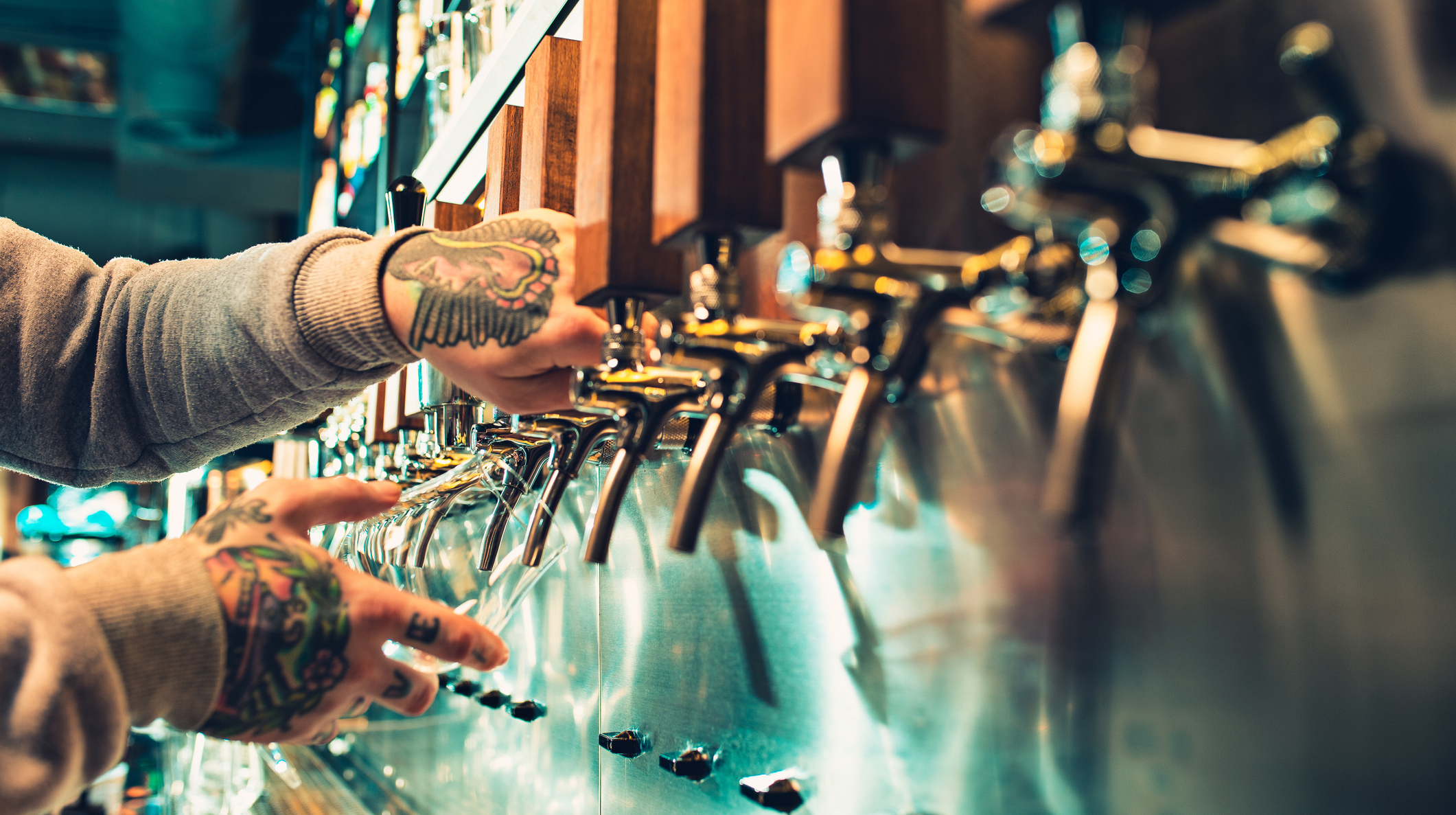Are New Jersey's New Brewery Regulations Too Restrictive?
I was a New Jersey resident until the age of 18—I still have the cell-phone area code to prove it—so I try to keep an eye trained on that state's beer scene. Earlier this week, Garden State beer folks began messaging me: Had I seen the new brewery regulations? People were calling them "draconian" and "pretty messed up." They directed me to an online petition, should I feel as upset as they are.
Before you make up your mind, here's some necessary background: When it comes to this change, we're talking about brewery taprooms, not brewpubs (which have full kitchens and are regulated differently). Taprooms don't sell hot food or liquor, just their own, made-on-site beer. Before 2012, New Jersey brewery taprooms were only allowed to sell patrons four 4-ounce beer samples on-site, plus two six-packs to-go. Thus, breweries weren't really destinations except for all but the most die-hard of beer geeks. In 2012 though, a new law was passed that allowed breweries to sell pints, give tours, and sell up to a half-keg of beer to-go. Some details—about events, food trucks, etc.—were left in a sort of gray area and were slated to be ironed out after the bill passed.
Except they never got ironed out, and for the past five years, breweries have been living in the sort of "Wild West"—as one brewery owner put it to me—where taprooms can take liberties with the regulations' undefined areas. So fast-forward to 2018, and now the state's liquor regulators have finally decided to clarify some of these gray areas. (For even more of the backstory, dig into this explainer from NorthJersey.com).
Now on its face, the new regulations do seem restrictive. They limit brewery taprooms to hosting just 25 events a year, which includes not just beer festivals but regular events like trivia nights, musical performances, brewery yoga, etc. It also bars breweries from parking food trucks on their property, and prevents them from broadcasting live sporting events. I like brewery events, food trucks, and sports. Yeah, this sucks!
But some more moderate voices caution that these regulations, which were enacted as a special ruling by the state's Department Of Alcohol Control, aren't all bad, and may in fact be a net positive. The rules are being instituted on a "temporary pilot basis," so the wait-and-see crowd says they'll likely be tweaked and modified in the future. A couple breweries I reached out to told me they're waiting a while before issuing any statements or talking to the press about the issue. Some, though, are actually for the new regulations.
"For me, the big thing is this gives everyone clarity. It needs a little work, but it's a start," Gene Muller, found of Flying Fish Brewing Co. in Somerdale, New Jersey, tells me. "It's good in that it gives clarity now, and it gives [breweries] privileges we didn't have before. To me the plusses outweigh the minuses, and it's a first step."
Some of those new privileges include the ability to sell snacks—like pretzels, nuts, or chips—at the brewery ("Before, I could sell you 10 beers but couldn't sell you a bag of potato chips" Muller says). The regulations also give breweries permission to host 12 off-site events per year, including beer festivals that would invite other out-of-state breweries. Previously, if a brewery wanted to pour beer at a city's downtown festival, say, it would have to obtain special permitting that most municipalities weren't equipped to dole out. Most breweries were effectively locked out of those events.
But what about the restriction to 25 on-site events per year? Isn't that a pain?
Muller shrugs it off. He says it's not an issue for Flying Fish and other breweries that just want to sell their beer and foster conversation: "For us it's all about the beer and being a communal place for people to come and talk. I don't want TVs and bands blaring." (Flying Fish, it should be noted, sells 99 percent of its beer to distributors, and therefor isn't as reliant on taproom beer sales.)
The takeaway for me is that whether these new regulations hurt or help a certain brewery comes down to its business model. The 2012 law pegged brewery tasting rooms as marketing vehicles that ultimately help the brewery sell more beer to distributors, bars, and restaurants, like Flying Fish. The model of just making a living off selling beer from the taproom didn't really exist. But when the state failed to clarify some of its regulations in the intervening years, breweries opened up that intend to sell the majority of their beer on-premise, while hosting bands, broadcasting sports games, and running trivia nights.
That, some say, is basically a bar. And in a state where liquor licenses can cost upwards of $1 million, bar and restaurants say it's unfair that a taproom licensed with just a limited brewery license—for a few thousand bucks—can operate the same way.
"Some folks don't realize what a regulated industry beer is," Muller says. "They think 'hey, it's beer and it's fun,' but at the end of the day it's a restricted, heavily regulated product."
The good news for those opposed to the new regulations is that they've been instituted on a "temporary pilot basis" as the Division Of Alcoholic Beverage Control watches how they play out. While we have yet to see how long critics will continue to fight against the regulations, one thing is clear: It's unlikely we've seen the end of this issue.
